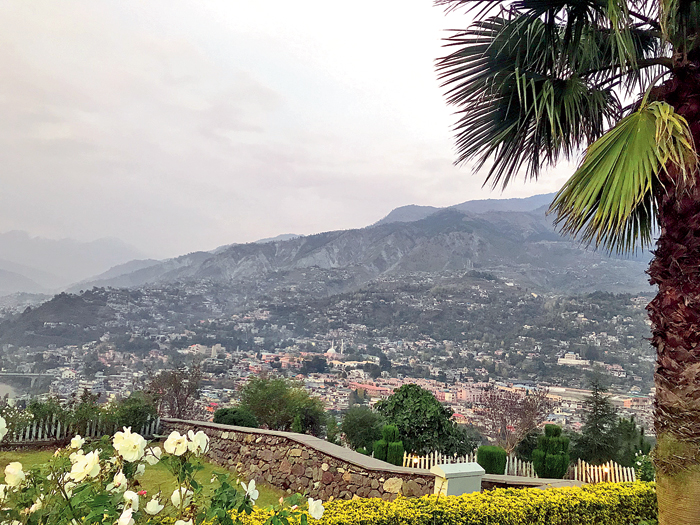This is not the first time I have travelled to Muzaffarabad, but given the situation back home after the abrogation of key provisions of Article 370, I started to compare things.
The permit system that was once necessary to enter the territory has been excised. However, people, whether Pakistani or outsiders, have to get down at the new Kohala Bridge and show their ID cards. The process is pretty smooth and hassle-free.
The old bridge that lies in ruins is almost half a kilometre ahead. Built in 1899, it has a rich history. On June 19, 1946, when Jawaharlal Nehru crossed it to support the Quit Kashmir movement, he was seized by Maharaja Hari Singh’s forces along with his colleagues, Asaf Ali and Dewan Chaman Lal.
Muhammad Ali Jinnah also used the overpass for his journeys to Kashmir. The bridge is still used for pedestrian traffic but has lost its splendour to the shops and other buildings that have cropped up on either side.
The first thing that strikes one is the conspicuous absence of any military forces on the roads, or in the towns and villages scattered across the mountainous terrain. This becomes the region’s severe disadvantage in living up to its official Indian designation as “Pakistan-occupied Kashmir”.
A Pakistani colleague rubbed it in by loudly pointing it out to our group of academics and journalists who were travelling in a van: “You would be hard-pressed to find any army personnel on the roads in comparison to the Indian side, which is replete with military presence even in government buildings, residential houses, alleyways, orchards and pastures.”
The absence of any physical military control that we have become accustomed to on the Indian side did stand out.
During my three days of stay, all I was able to notice was a few policemen regulating traffic at two or three junctions or a dozen or so cops at the entrances of the prime minister’s personal residence or the President House.
Also, there was no Section 144 in place that could bar throngs of people who were out and about, attending to their daily business. Phew! The Internet also worked and without any conditions from any authorities.
We were received by Shah Ghulam Qadir, a veteran politician and the Speaker of the Azad Jammu and Kashmir (AJK) legislative assembly. He made a brief speech at the luncheon he had organised. Welcoming the guests, Qadir mentioned AJK’s distinction of having a separate flag and anthem, a president and a prime minister. He also stressed that it was a land of no curfews, mass arrests or pellet guns.
But all was not well. A lot of anger was visible on people’s faces. They were worried about the abrogation of provisions of Article 370 on the other side of the Line of Control and the clampdown that followed.
Several people — bureaucrats retired or serving, journalists, commoners and refugees who had migrated in 1989 or earlier and still have relatives on the other side -– displayed extreme concern.
Many people, including some politicians and bureaucrats, accused the Pakistani army of “doing nothing” despite long claims. Some even suggested that the Narendra Modi government’s action had been carried out with some understanding between the two countries to bury the Kashmir issue once and for all.
Some voices demanded complete azadi from both Pakistan and India while others cautioned that such an attitude would invite a fate similar to that of the Kurds, who are getting a beating from all sides.
It was after a long time that I found stronger support for a Kashmiri-led insurgency. Several people told me they were ready to cross the Line of Control to wage war but accused the Pakistani army of trying to blunt the sentiment by managing public outrage and sentiments through what they described as cosmetic gestures.
Nobody seemed to care that a renewed insurgency might escalate and lead to more and overwhelming destruction for the region.
On three different occasions, I heard prime minister Raja Farooq Haider address public forums. He launched thinly veiled but strong attacks on the Pakistani establishment for not doing much to help Kashmiris.
During an interview with me, he seemed convinced that things were progressing towards a large-scale confrontation and that “a complete war” might be the only solution.
Even the president, Sardar Masood Khan, a distinguished former diplomat who is usually guarded, suggested that war was a possibility because the “Indian leaders continuously talk about attacking AJK”.
Back in Islamabad, I bumped into a European diplomat who worried the region was sleepwalking into a war.
- Murtaza Shibli is a British Kashmiri author and journalist who lives between Srinagar, Lahore and London











